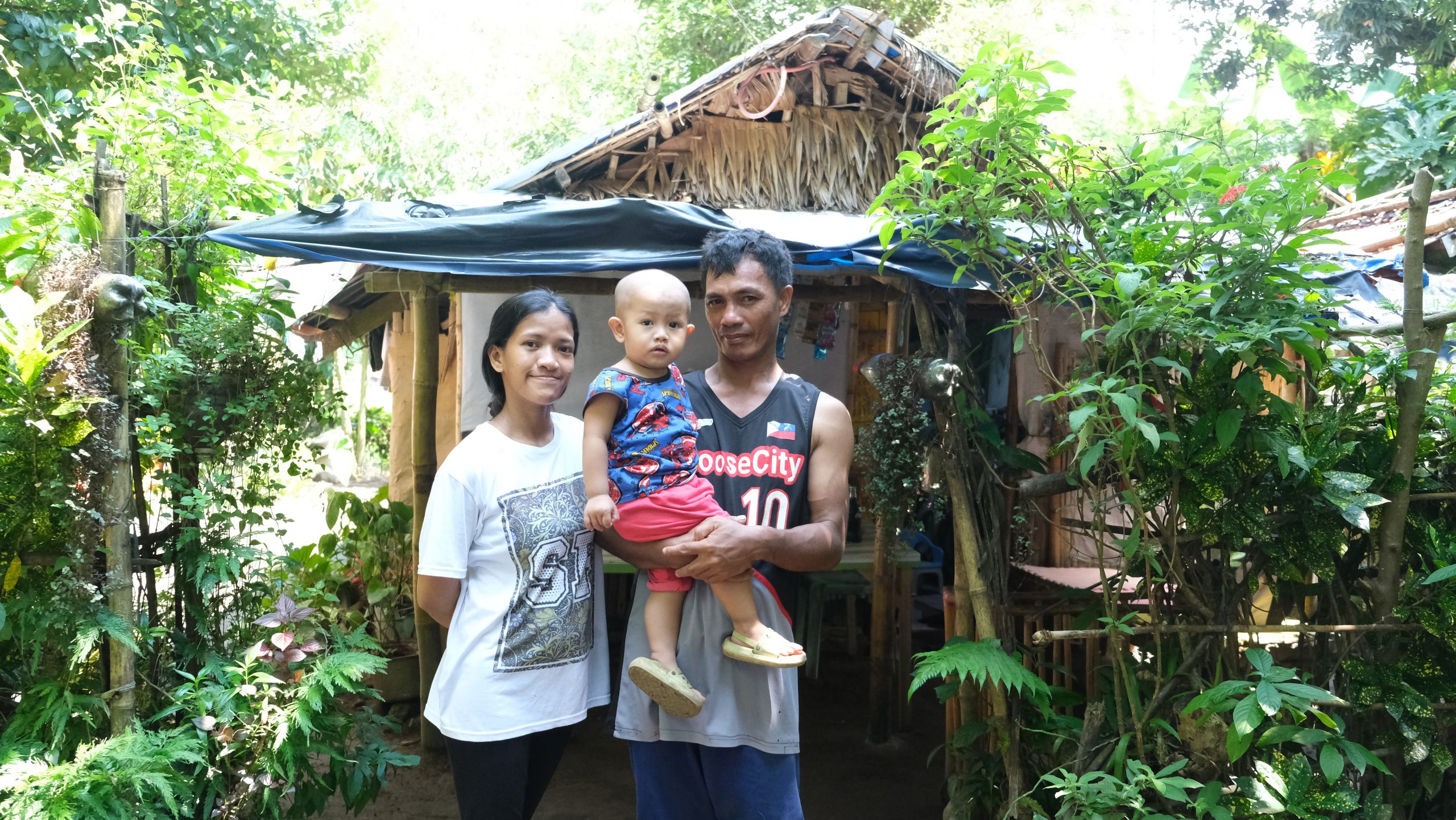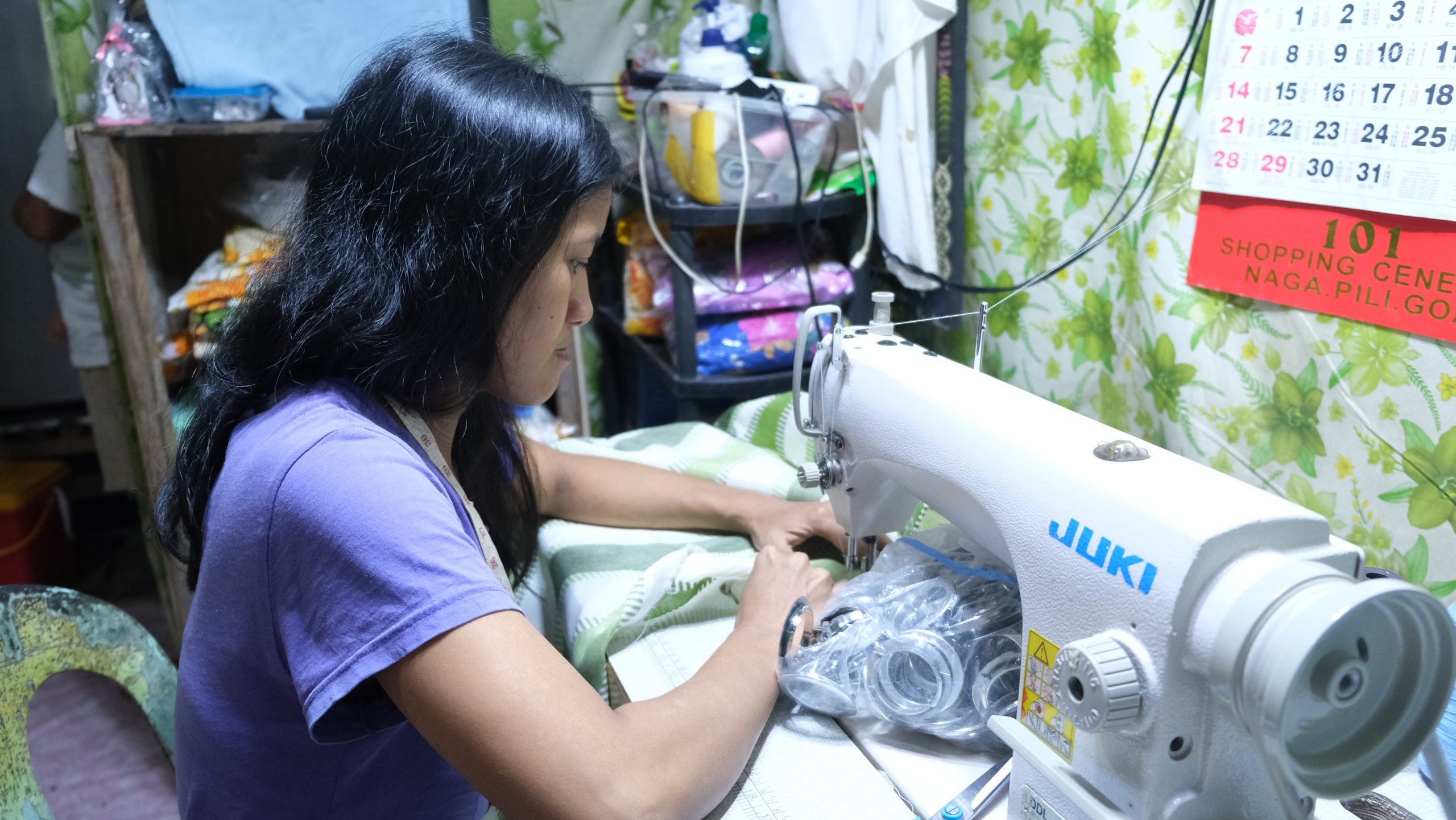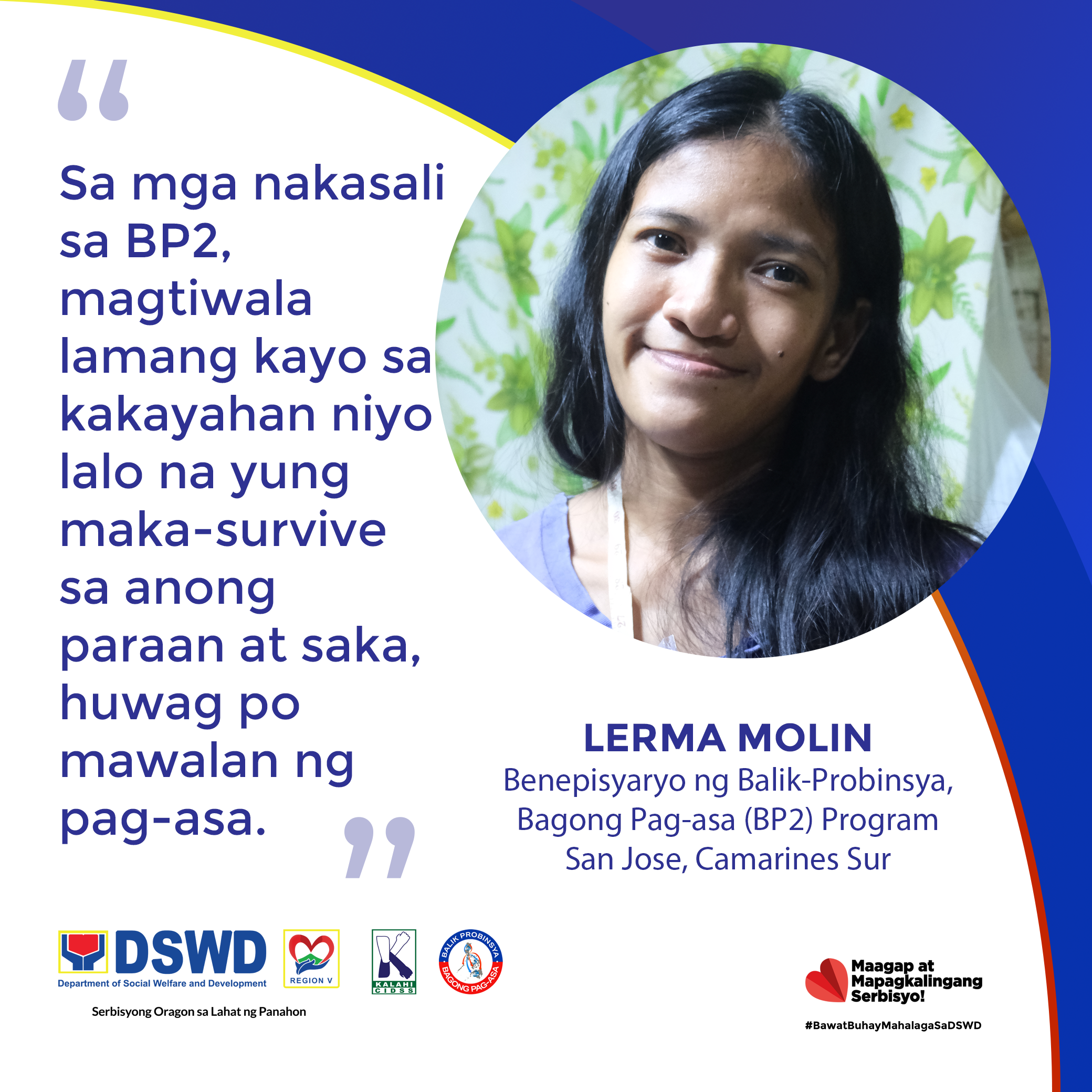
At a young age, we were taught how to sew using basic hand stitches with a needle, thread, and piece of fabric as a basic life skill. Beyond the stitches and patches we create when mending our clothes, we also learn how to take life one step at a time.
Lerma Molin, 34, and her husband, Ronald Surigao, 38, already had plans as they started their family in Laguna. But all these were put on hold when the COVID-19 pandemic hit the country. The couple who worked in a tailoring company lost their jobs due to manpower cuts, thus, affecting their main source of income.
“Noong una, hindi naman po kami nahirapan kaya lang po nung nagkapandemic, nawalan kami ng trabaho tapos mahirap talaga na wala ka malapitan,” Lerma said.
(At first, we had a stable life but when the pandemic came, we lost our jobs, and it was difficult for us that we don’t have anyone to ask for help in terms of financial needs.)
At that time, Lerma must take care of their newborn son and Ronald had to work in various jobs for their living expenses.
“Yung sinasahod ng asawa ko magkano lang, nag-uupa kami, yung allowance niya pa, pang araw-araw namin, yung sa anak ko nag-gagatas kasi wala naman akong gatas,” she described.
(My husband’s salary is low, we divide the income for our rent, his allowance, daily living expenses, and milk for our son because I cannot produce enough breastmilk.)
Ronald also shared that there were instances when they only ate meals twice a day. Due to difficult circumstances, the family chose to settle in Lerma’s hometown, San Jose, Camarines Sur in September 2021.
Despite being new in town, Ronald preferred staying in the province because planting vegetables can lessen the expenses on groceries as compared to living in a highly urbanized city.
STARTING OVER
As one of the support measures for families like Lerma during the COVID-19 pandemic, the Department of Social Welfare and Development through the Kapit-Bisig Laban sa Kahirapan – Comprehensive and Integrated Delivery of Social Services (KALAHI-CIDSS) implemented the Balik-Probinsya, Bagong Pag-asa (BP2) Program.
This program aims to provide opportunities to families from urban areas who are affected by the pandemic, displaced workers, or those who are susceptible to health and safety risks and other environmental hazards.
Lerma’s family was identified as one of the beneficiaries of BP2 Program as endorsed by the Local Government Unit (LGU) through the Municipal Social Welfare and Development Office (MSWDO).
Through the assessment of DSWD’s social worker, the family received PhP 82,000.00 financial assistance wherein the Transitory Family Support Package worth PhP 32,000.00 covers the food and non-food items needed during the transition phase while PhP 50,000.00 for the Livelihood Settlement Grant to
establish their source of income or livelihood.

Grant received under the BP2 Program.
The couple proposed to set up a tailoring business as Lerma finished her studies in Garments, Fashion and Design. Using the grant received, she bought an electric sewing machine, fabrics, and other sewing tools and equipment.
Lerma sews curtains, pillowcases, bed sheets, school or office uniforms, and other home essentials. She also does repairs and alters clothes. Ronald, on the other hand, works as a laborer.
Aside from the tailoring business, they also set up a mini sari-sari store as an added income.
“Malaki ang naitulong kasi nung time na umuwi kami, wala kami naiipon at nabili ko ang kailangan ng anak ko yung diaper, gatas, at vitamins,” Lerma shared.
(The assistance provided was a huge help because during the time we went home to San Jose, we don’t have any savings, but through the financial aid I was able to buy the essential needs of my son such as diapers, milk, and vitamins.)
Lerma said that she is delighted that she sells her own product creations and earns income at the same time. She also wishes that she will sew more fabrics in the future and expand her tailoring business.

“Sa mga nakasali sa BP2, magtiwala lamang kayo sa kakayahan niyo lalo na yung maka-survive sa anong paraan at saka, huwag po mawalan ng pag-asa,” she encouraged.
(For those who are beneficiaries of BP2 Program, just trust your skills in order to survive, and of course, don’t lose hope.)
Just like a fabric, our journey is made of thousands of stitches, and it is in our hands how we will tie the knot of life.
“Sa mga kasamahan kong Balik-Probinsya, sana mapalago natin yung ibinigay sa atin na tulong ng BP2 at sana magtulungan tayo,” Ronald advised.
(To our fellow beneficiaries of Balik-Probinsya, I hope that we will use the assistance provided by the program to prosper and let us help each other.)
